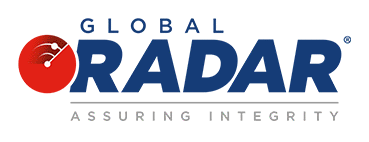The United States has let it be known that the time is now to take a stand against growing issues that have directly impacted both the financial services sector and the country altogether. Problematic areas such as financial crime, drug trafficking, and terrorist financing have been targeted by recent legislation which has mirrored this robust stance, as profound efforts have been made to increase the scope and demand of regulations by which financial institutions (FI’s) must comply. Additionally, new, potent technologies are being generated and incorporated by FI’s of all sizes on seemingly a weekly basis, in addition to an expansion in personnel training and responsibilities seen throughout the financial industry today. This comprehensive approach to increasing financial security has also been adopted by financial institutions in other regions of the world, and too has had positive effects on combatting financial crime. With these developments, it seems that there truly have never been more resources in place to combat the illicit activities that have continuously put a damper on the positive developments seen in the financial industry. However, one area that continues to be a pervasive global issue impacting multiple industries is the realm of human trafficking. Defined as the practice of illegally transporting people from one country or area to another, typically for the purposes of forced labor or commercial sexual exploitation, human trafficking is currently the second largest illegal business in the world, trailing only drug trafficking. This growing trend impacts every region of the world, including the United States, yielding approximately $150.2 billion annually for the criminals engaged in this practice. With returns this great, it is obvious why the issue has grown exponentially in recent years, with an estimated 20 to 45 million people currently being denied freedom due to the widespread reach of this criminal industry. Although the outlook for halting this trend seems bleak given the sheer number of variables involved when working across international borders, many believe that the financial services sector can in fact play a huge role in gradually decreasing these staggering statistics.
An article published by Reuters earlier this summer titled “Financial sector not using its full power to fight human trafficking: report” discusses how daily compliance-related activities such as the reporting of suspicious activity and seizure of assets can play a major role in helping to fight human trafficking both domestically and abroad. A report released by the United Nations University (UNU) – the research arm of the United Nations – identified financial tools as a “powerful means to disrupt the flow of money generated from human trafficking” (Wulfhorst, 2017). These tools include use of risk assessment and due diligence procedures, cross-border collaboration and information sharing, and the development of transaction monitoring techniques designed to identify any and all suspicious activity related to accounts of all sizes. A growing link between corruption, bribery, and this trafficking activity has been identified, making the anti-money laundering (AML) measures being utilized mostly for compliance/security reasons essential in gaining Intel and data and ultimately apprehending human traffickers and those that often employ them.
Advanced measures have also been adopted, with financial institutions going beyond the aforementioned standard AML procedures to come up with specific rules and criteria intended to find patterns and behaviors that will better identify financial activity related to human trafficking, including the use of now-popular virtual currencies. Legislation has also been adopted that directly relates to the financial services sector, as the U.S. Financial Crimes Enforcement Network (FinCEN) has proposed guidance in regards to this area that may help to highlight financial red flags for human trafficking activity. One behavior that was touched on in particular is the “funnel account”, which involves a banking customer who opens the account as a front for a criminal organization. Illegal funds are deposited at one geographical location with immediate access from a different geographical location. Generally the transactions are just under the cash transaction reporting (CTR) limit of $10,000 per banking day” (Grant Thornton, 2017). In addition, this past April U.S. Senators Elizabeth Warren and Marco Rubio introduced legislation to Congress with the sole purpose of aiding FI’s in identifying and reporting human trafficking cases so that offenders can be prosecuted and victims can be protected. The proposed bill, coined “The End Banking for Human Traffickers Act” would “direct federal banking regulators to work with law enforcement and financial institutions to combat the use of the financial system for human trafficking” (Warren, 2017).
These efforts alone are not enough however, as the various members of the international community respectively hold different standards in regards to matters of this nature, and laws protecting privacy and confidentiality of financial information can often be complicated, especially when dealing in multiple jurisdictions. However, given the growth of financial technology and advanced personnel training protocols in this sector, financial institutions within the U.S. and abroad are in a position to potentially have a positive impact on the lives of thousands, if not millions of lives of oppressed individuals across the globe.
Weekly Roundup
Nepal Steps Up Enforcement on Beneficial Ownership
Earlier this week, the Securities Board of Nepal issued an ordinance to all financial institutions operating within its jurisdiction, directing them to only open beneficial ownership accounts when they are in the physical presence of these respective clients. This move was the first in a line of soon-to-be implemented legislation aimed at strengthening weaknesses seen in the capital market, including making the market more transparent and secure for financial investors overall. This move also comes in “the wake of growing complaints of irregularities in the beneficial owner account opening process by some depository participants (DP’s)” (Republica, 2017).
The article “Clients’ presence made mandatory for opening beneficial owner account” cited in BSA News Now on August 29th, 2017, describes DP’s as the agent of the depository “where investors open their dematerialized account as a beneficial owner where their securities are deposited, debited and credited” (Republica, 2017). Another issue discovered in the examination of depository participants was the widespread processing of unauthorized transactions following the account opening process. The identification of beneficial owners at the time a new account is opened has been a major topic of discussion both within the United States and internationally in recent years. New rules implemented by the Financial Crimes Enforcement Network (FinCEN) in 2016 called for a departure from financial institutions past practices where FI’s exercised their own judgment in making risk-based assessments on whether to identify and verify beneficial owner information for legal entity accounts. With the incorporation of strict know your customer (KYC) practices on the horizon in Nepal, the identification of potentially suspicious clientele and activity is likely to increase exponentially.
NY State Department Seeks to Fine Pakistani FI
An official from Pakistan-based Habib Bank Ltd. (HBL) came forward this week stating that the New York State Department of Financial Services (DFS) is seeking to fine the corporation approximately $630 million for compliance failures discovered at its lone U.S. branch. These compliance issues date back to late 2015, where the DFS identified numerous breakdowns in the bank’s anti-money laundering (AML) compliance protocols. Upon making these discoveries, the DFS demanded that HBL implement a series of reforms for the prevention of future illicit monetary transfers. The statement released by bank secretary Nausheen Ahmad on Monday stated however that “despite HBL’s sincere and extensive remediation measures, DFS is still not appreciating or recognizing the significant progress that HBL has made at its branch in New York” and will be pursuing the aforementioned civil money penalty (Hassan, 2017).
While the primary compliance issues involved in this case remain unspecified thus far, New York state recently imposed strict AML legislation “which include requiring a bank’s chief compliance officer to certify whether it maintains the types of systems outlined in the rule to detect and prevent illicit money transfers”, so there has been speculation that HBL’s failures may have involved activity of this nature (Hassan, 2017). The statement from the HBL representative also indicated that the organization plans to appeal the DFS decision, and stated that these findings will play no part in HBL’s business outside of the United States. The case is not the same for HBL’s U.S. branch however, as HBL has already submitted an application to the Department of Financial Services to end its operations in New York. This decision contributes even more to the already-strained relations between the U.S. and Pakistan seen today.
Taiwan Stepping Up AML Enforcement
Following a string of recent, highly-publicized financial penalties issued against several of the country’s banks for compliance-related failures, Taiwan has begun the process of trying to rehabilitate its notorious international reputation as a major money laundering hub. Implementing diligent training programs for staff members aimed at increasing their overall abilities to combat money laundering activity, Taiwan-based financial institutions have also started to incorporate comprehensive programs to better maintain their compliance with the latest legislation, essentially bringing them up to par with international standards. In years past, Taiwanese FI’s have succumbed to large amounts of money laundering and cybercrime due to a general lack of adequate anti-money laundering (AML) and counter-terrorist financing (CTF) controls in place. As a result of this lax enforcement, these FI’s have had to pay the price – literally – with several organizations being charged hundreds of millions of dollars for their respective failures or insufficiencies.
The most notable case involved Taiwan-based Mega Financial’s branch in New York City, where U.S. authorities discovered that the bank “had been indifferent to the risks associated with transactions involving Panama, a high-risk area for money laundering” (Hung, 2017). Mega Financial was ultimately charged $180 million by U.S. authorities for these AML issues. However, the results of the new movement towards greater financial security within Taiwanese FI’s has been praiseworthy thus far, as a large percentage of employees within these organizations have now been certified with thorough anti-money laundering training. Although the costs involved with training and establishing new processes can run high, the implementation of more strict AML procedures and the continuing of this potent training are two of the more important practices that Taiwan must continue to invest in in order to regain international confidence in their AML measures.
Citations
“Clients’ Presence Made Mandatory for Opening Beneficial Owner Account.” My Republica. 26 Aug. 2017. Web.
Hassan, Syed Raza. “Pakistani Bank Says New York Regulator Seeks to Fine It up to $630 Million.” Reuters. Thomson Reuters, 28 Aug. 2017. Web.
“How the Financial Services Sector Can Help Tackle Human Trafficking.” GrantThornton. Grant Thornton International Ltd., 2017. Web.
Hung, Faith. “Stung by Reputation, Taiwan Looks to Turn Corner on Money Laundering.” Reuters. Thomson Reuters, 30 Aug. 2017. Web.
“Warren and Rubio Introduce Bill to Shut Down Access to the Financial System for Human Traffickers.” Elizabeth Warren | U.S. Senator for Massachusetts. 26 Apr. 2017. Web.
Wulfhorst, Ellen. “Financial Sector Not Using Its Full Power to Fight Human Trafficking: Report.” Reuters. Thomson Reuters, 12 July 2017. Web.

